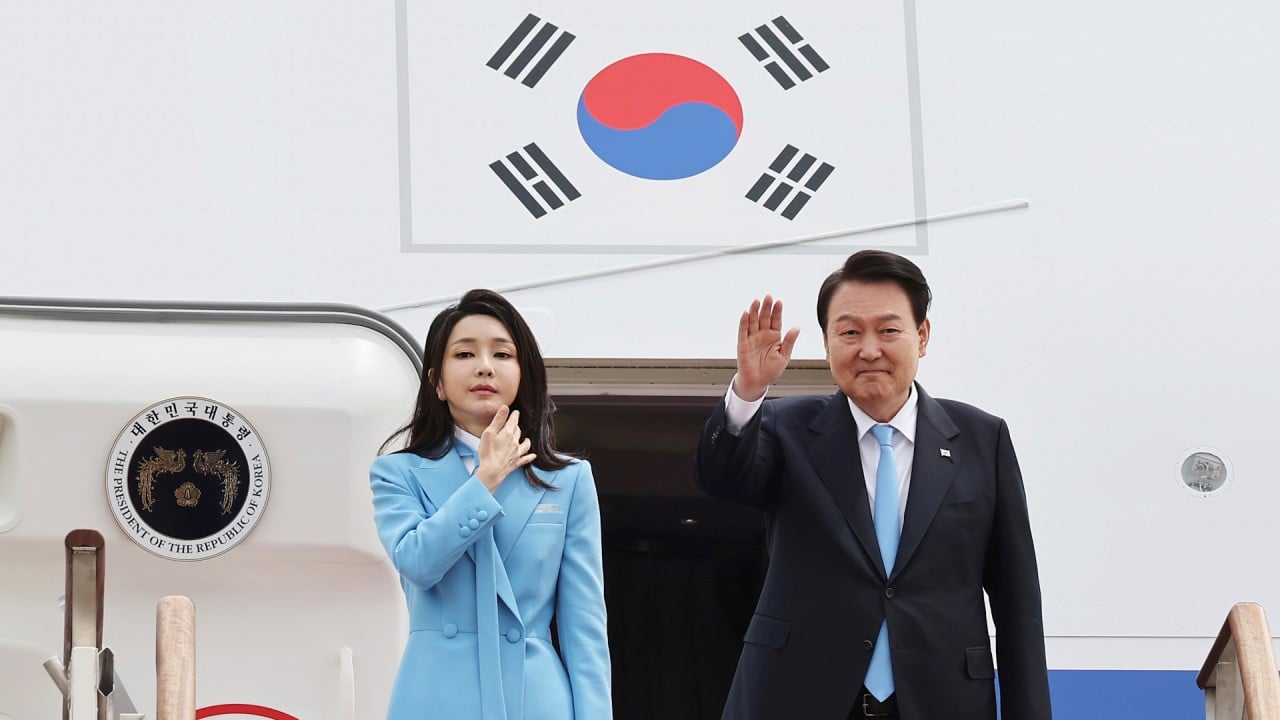South Korea’s controversy prone first lady Kim Keon-hee keeps a low profile ahead of parliamentary polls
“If she re-emerges, it could be problematic, not just because of the scandals themselves, but her unfavourable image before the public.”
The president’s office did not comment.
Korean first lady likened to Marie Antoinette over taking Dior bag from pastor
“After one issue ended, another arose,” said Kang Hyun-sook, a 65-year-old resident of the capital. “It was a pattern for her. Then for the last four months, it has been quiet as she disappeared from the public eye.”
Still, Kim has been a drag on Yoon’s popularity, which dipped to 36.3 per cent in a survey of 2,509 people published on Monday by pollster Realmeter, from a recent high of 41.9 per cent.
The PPP was trailing the Democratic Party, at 35.4 per cent to 43.1 per cent.
“This has gone too far,” said another Seoul resident, Park Chae-woon, 20, referring to the controversy around Kim.
“I believe she should not hide, but confront the issues, either by making an apology or taking responsibility on the matters.”

North Korea launched what appeared to be an intermediate-range ballistic missile from Pyongyang at 6:53am on Tuesday, South Korea’s Joint Chiefs of Staff said in a message sent to reporters. The missile landed outside of Japan’s exclusive economic zone, Japan’s Ministry of Defence said in a statement.
These weapons are designed to deploy a reentry vehicle for carrying a nuclear warhead that can change its flight path at high speeds, making them hard for interceptors to shoot them down. Experts had said North Korea’s engine test was likely aimed at checking its reliability and extended burn time, which would allow a longer flight range.
Inside North Korea: photos capture rare glimpse of life in closed-off nation
A missile of this sort is built to fly far enough to hit all of Japan, where the US has positioned tens of thousands of troops, as well as US military facilities in Guam, where the Pentagon says it keeps one of America’s largest munitions depots in the world.
“The North Korean regime is trying to shake our society ahead of general elections through continued military provocations including missile launches,” Yoon said after the launch.
North Korea could be looking to stir up tensions to build support for Yoon’s rivals in the Democratic Party, a progressive group that favours rapprochement with Pyongyang.
Additional reporting by Bloomberg
